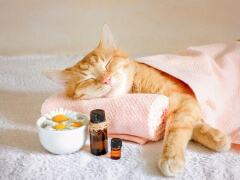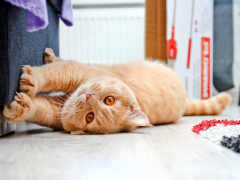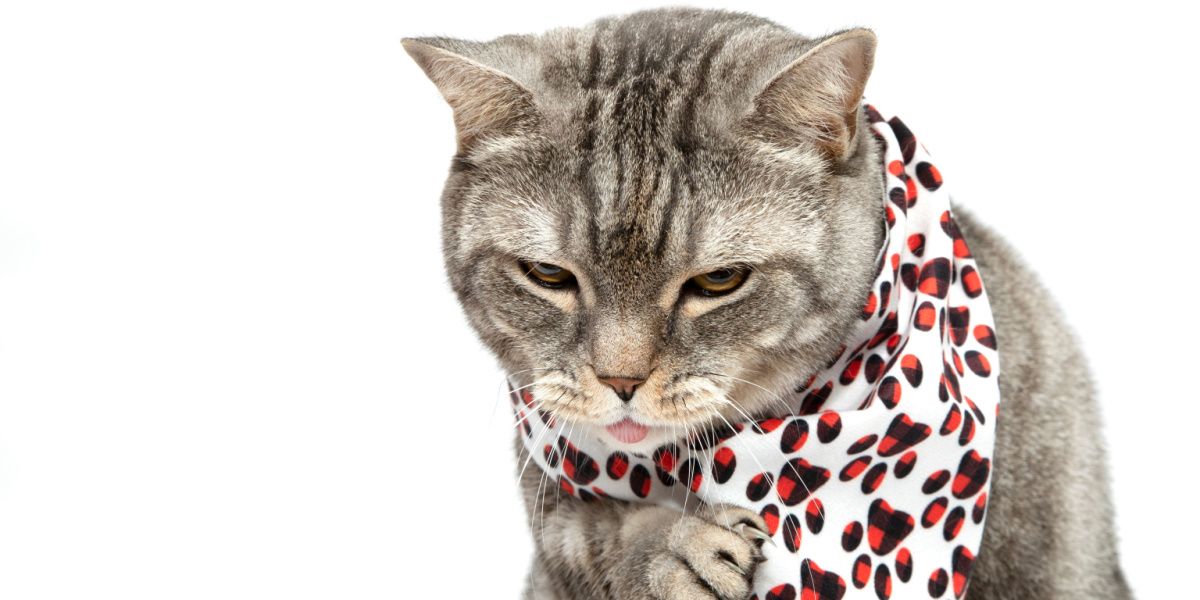
Most pet owners know about kennel cough in dogs, but what about cats? Upper respiratory disease is common in cats, and many people are familiar with the term “cat flu,” but that’s not the only infection that could be causing your cat’s symptoms.
Key Takeaways
Kennel cough is rare in cats, but some cats can become infected.
Kennel cough usually causes upper respiratory signs such as sneezing, coughing, and nasal discharge in cats.
Kennel cough is treated with antibiotics and anti-inflammatory medication.
Kennel cough, although having a rather canine-related name, can affect cats too, although it’s very rare. Let’s learn a bit more about how kennel cough affects cats and how it can be treated and prevented.
What Is Kennel Cough?
“Kennel cough” is the name given to upper respiratory symptoms that are more commonly seen in dogs. Several different bacteria and viruses can cause kennel cough, but Bordetella bronchiseptica is the most common bacteria that causes the illness.
It’s actually related to the bacteria that causes whooping cough in humans. This type of bacteria is spread in the saliva, nasal secretions, and airborne droplets of infected animals, so it usually spreads by close or direct contact.
Kennel cough is extremely common in dogs, but it’s very rare in cats, although cats can catch it. It usually tends to spread more readily in large cat colonies such as multi-cat households, animal shelters, or breeders with mulitple cats.
Can Cats Get Kennel Cough?
Although we know that kennel cough is rare in cats, they can occasionally catch it. The bacteria Bordetella bronchiseptica causes illness in dogs and can also affect cats. Most commonly, cats catch the infection from another cat, especially in situations where there are lots of cats living together.
The bacteria usually spread via the saliva or nasal secretions of an infected cat, but it can also spread in the environment via fomites (objects that the bacteria live on) such as food bowls and toys.
What Are the Symptoms of Kennel Cough in Cats?
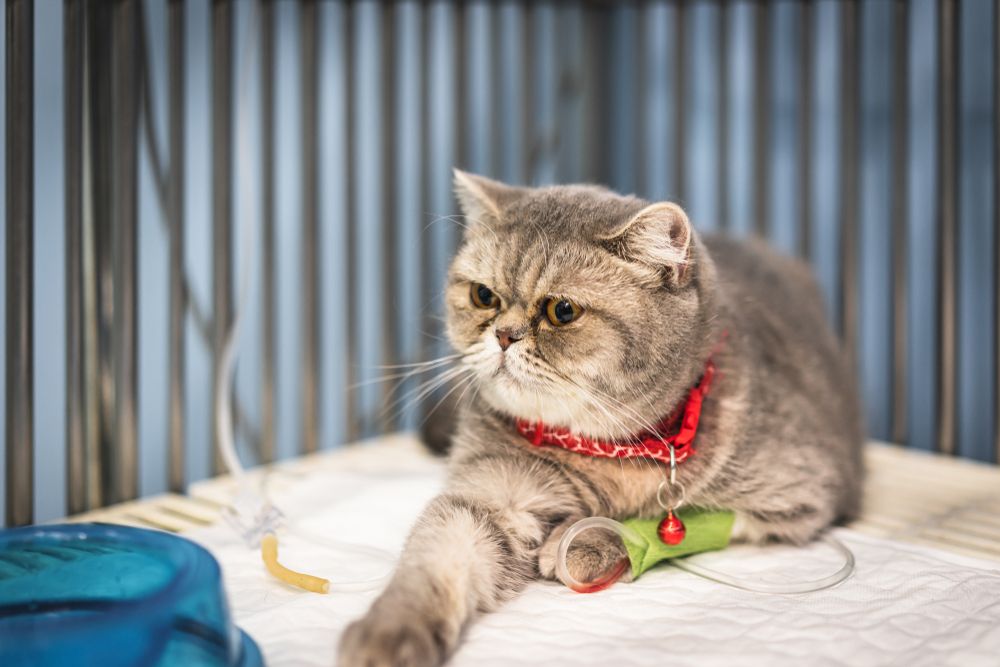
Kennel cough is an upper respiratory infection, and the symptoms usually include:
- Sneezing
- Coughing (the cough is usually dry and might sound like your cat is retching)
- Discharge from the nose and eyes, which might be clear, yellow, or green
- Lethargy
- Loss of appetite
- Fever
The symptoms of kennel cough are usually mild but can be more severe, especially in kittens or very old cats, or cats with underlying health conditions. Secondary bacterial infections can also occur, which may make your cat feel more unwell or cause the illness to last for longer.
If your cat has any of these symptoms of kennel cough, it’s important to get them examined by your veterinarian. Kennel cough can be diagnosed quite easily by taking a swab from your cat’s throat to test for the Bordetella bronchiseptica bacteria. If left untreated, pneumonia can develop, which could make your cat very sick.
How Is Kennel Cough Treated?
Kennel cough is usually treated with antibiotics, as it is a bacterial infection. Doxycycline is the most commonly used antibiotic for kennel cough. However, it’s very likely that the bacteria is resistant to certain antibiotics; your vet might advise taking a swab from your cat’s throat to send to the lab for testing to see which antibiotics are going to be the most effective at treating the bacteria.
It’s likely the vet will also prescribe some anti-inflammatory medication, which will bring down your cat’s fever, and also perk your cat up and help them to feel much brighter. Mucolytics, medications that can help clear mucus and congestion, are often also prescribed.
Something you can do at home to help your cat is steaming. This helps to clear mucus and congestion. The safest way to do this is by sitting with your cat in a hot, steamy bathroom. Always supervise your cat in this situation.
You should never treat your cat with any over-the-counter cough suppressants made for humans, as this can be very harmful to your pet. Nor should you use any medication that has previously been prescribed for your dog with kennel cough. You can use steam to help clear mucus, such as sitting with your cat in a hot steamy bathroom.
How Long Does Kennel Cough Last?
Kennel cough is typically a short-lived illness, and most cats recover in seven to 10 days. However, in some cats, it can persist for longer, and secondary bacterial infections can occur, which take longer to treat. If your cat is struggling to overcome kennel cough, it’s important to speak to your vet.
Kennel Cough Versus Cat Flu
Many cat owners are familiar with the term “cat flu,” which is used to describe a set of symptoms, usually respiratory, in cats. Cat flu can be caused by a number of different viruses, including feline herpes virus and feline calicivirus. Cat flu is highly contagious, and secondary bacterial infection is common.
Symptoms of cat flu include:
- Sneezing
- Discharge from the eyes and nose
- Lethargy
- Inappetence
- Fever
The symptoms of cat flu and kennel cough are very similar, so it can be easy to confuse the two different diseases. If your cat is unwell and has any symptoms of cat flu or kennel cough, get your pet checked over by a veterinarian.
It’s possible to differentiate between cat flu and kennel cough with a swab taken from your cat’s throat, which the vet can send away to the lab to identify the bug that’s making your cat poorly.
Can Your Cat Catch Kennel Cough From Your Dog?
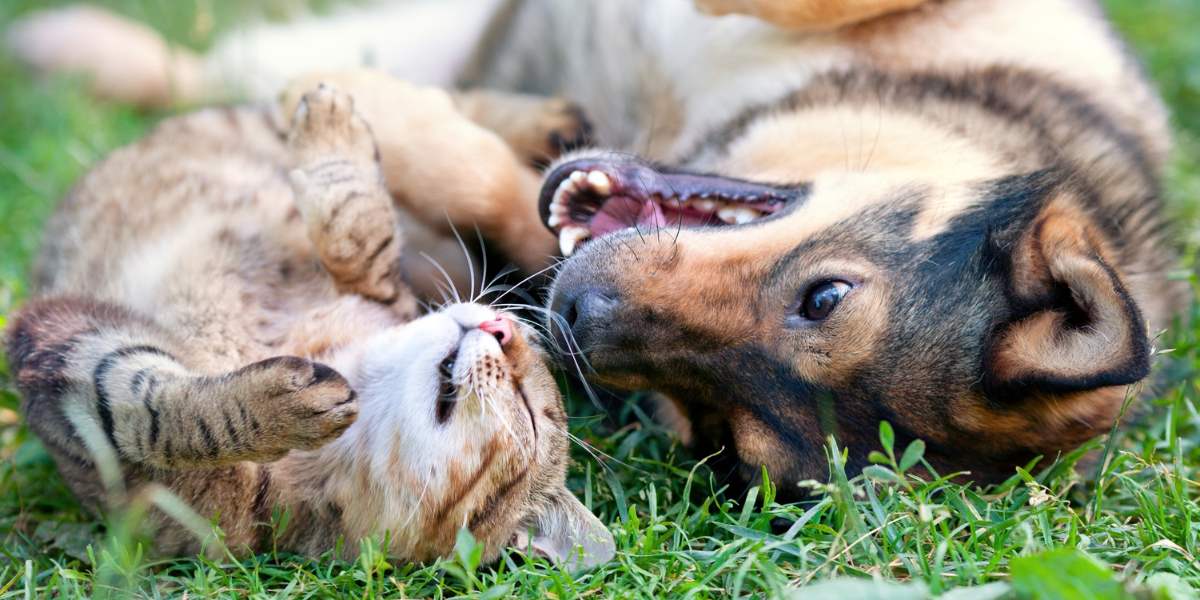
It’s possible for cats to spread kennel cough to dogs, but unlikely for dogs to give the disease to cats.
This is a common concern for pet owners, but there is little scientific evidence that kennel cough can spread between dogs and cats. It’s thought to be very unlikely that your cat will catch kennel cough from your dog, however, your cat could spread kennel cough to your dog. As a precaution, if one of your pets has been diagnosed with kennel cough, you should separate them until symptoms have resolved.
How Can I Prevent My Cat From Catching Kennel Cough?
It’s impossible to avoid our pets getting sick occasionally, but there are always things you can do to help prevent your feline family member from catching a bug. Kennel cough is highly contagious, and hygiene is the best way to prevent it from spreading. Bordetella can survive in the environment for up to two weeks.
Washing your hands after handling your infected pet and before touching your other pets, as well as thoroughly cleaning food and water bowls and toys with a pet-safe disinfectant will help prevent the spread.
The most important thing to do is to avoid your cat coming into contact with an infected cat. If you have more than one feline family member, you’ll need to separate the sick one until they are completely clear of symptoms. This sounds lonely for them, but it’s important as the bacteria usually spreads by close contact.
There is a vaccine available for dogs to prevent kennel cough, but unfortunately, there is currently no vaccine available for cats.
Final Thoughts
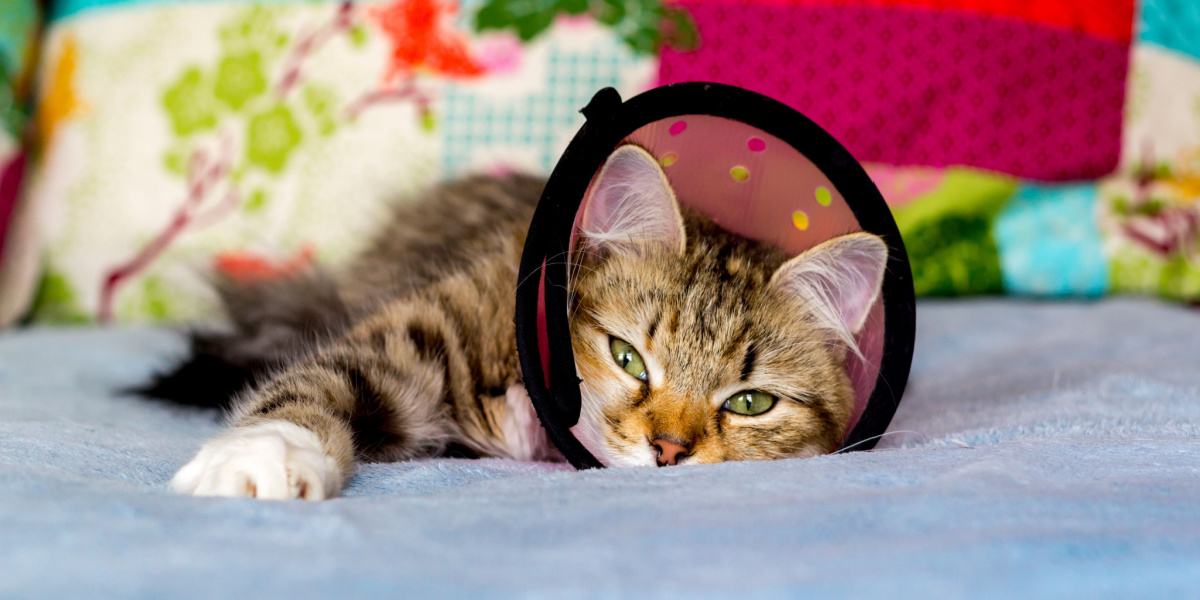
With prompt treatment, most cats recover from kennel cough relatively quickly.
Although kennel cough is rare in cats, it is highly contagious and can spread quite easily, especially in multi-cat households or large colonies. But it’s important to remember that other respiratory infections are more common in cats, such as cat flu, so you should always get your cat checked by a vet if you are concerned that they have respiratory symptoms. Kennel cough is a short-lived infection in cats, usually lasts seven to 10 days, and can be treated with antibiotics.
Also Read: Cat Suddenly Lethargic and Weak: Causes & Treatment
Frequently Asked Questions
How do I know if my cat has kennel cough?
Kennel cough usually causes coughing, sneezing, discharge from the eyes and nose, lethargy, and a fever. A swab of your cat’s throat is needed to confirm a diagnosis of kennel cough.
How do you get rid of kennel cough in cats?
Kennel cough needs to be treated with antibiotics and anti-inflammatory medications.
What does a cat sound like with kennel cough?
Kennel cough can cause sneezing in cats, as well as a harsh dry cough that might sound like your cat is hacking, honking, or retching.
How long does kennel cough last in cats?
Kennel cough usually lasts 7-10 days in cats



